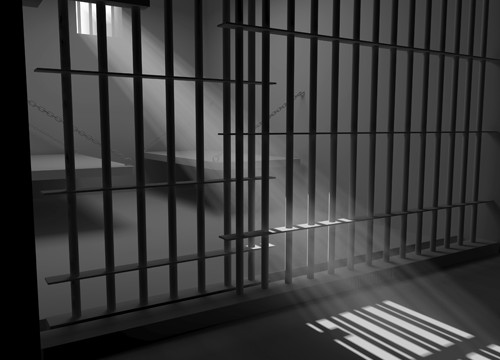Hello! From The Other Side Of The Bars
What’s it like on the inside of a prison? I bet no one ever wants to find out and neither did I. Until an old friend was released after four years, after being cleared of all charges. As we stirred our tea, I noticed his peculiar, newly developed gratefulness for food. How he eyed the samosa with so much love, how he handled the biscuit with respect, not letting a single crumb fall down, not declining even a single of my mother’s repeated offers to delicacies. As I got more attentive, I noticed how he breathed now, full and earnest as though wanting to inhale every molecule of fresh air. Or was this all psychological? For a second I thought I wanted to believe he had grown to have gratitude for a free life in four years, so I was imagining it. I was wrong. It was real and not all in my head. His narrative was as follows:
“You have heard of quarantine, right? In Pakistani prisons there is no quarantine, it’s pronounced “karateen”. Jail has it’s own language, it’s own accent. Contrary to what you might think, it is not a formality to probe and vaccinate the inmates of diseases. Karateen is a person, King Karateen as I call him. The court evaluates the prisoners as A, B or C class prisoners and declares their way and comfort of accommodation likewise. Young, first time offender, not proven guilty, belonging to a respectable family I was classified as a class B prisoner. The new fish has to go past this karateen person to be allotted his class (previously allotted by court), his barrack, penal labor (manual labor a prisoner is required to do), cell and cellmates. In the first meeting, not to beat the prisoner to pulp, karateen takes twenty five thousand rupees. To not lay a hand on him and to place him in the court decided class, he takes forty. To allot lighter workload he takes sixty five grand. Like school fee, he takes this money from your visitors every month. How your life in prison is going to be, he is the sole decider of that. Get off on the wrong foot with this guy and he will place you in C class no matter what, with the most ruthless and malicious of convicts in the entire facility. At least that is what happened with me. In the light of day, everyone is at each other’s throat and you cannot sleep all night fearing someone will stab you in the dark, just for the fun of it you know. Each day at 5 pm, the prisoners were lined up in a queue like animals and searched. Obviously nothing was found but it was another excuse to beat the hell out of the weaker ones with no good connections and monthly fee. For bedding there used to be a charpoy with a single cover. Later broken one by one and never to be repaired, we were left with the floor and a blanket”.
He went quiet for a while, studying my expression. I swear it was not in my head when I noticed the way he sat on the bouncy cushion of the couch, acknowledging the comfort.
“As the sharks sat around gambling, leering, jeering and sneering the whole day, we did twice the work we were allotted. Nobody dared say a word. After all, life is dear to everyone.”
I was sure at that point I didn’t want to hear anymore but I couldn’t stop him as he went on nibbling at a naan khatai and talking as if speaking of the weather. There was a faint sarcasm in his tone now.
“And the cuisine, I tell you. Exquisite in it’s own way. According to jail policy, three days of protein is a must in a week. Vegetable was mandatory too. But in C class, the only protein that made it to our plates was the chicken that had died of bird flu and cattle that died before slaughter. So on chicken day, we fasted. And on most days it was daal which was thinner than the water. Most inmates bribe the warden with five hundred per person a month to make groups of six to cook their own meals on coal stoves. I should make it clear that it is illegal but in a country like ours is it really wrong to break the law for survival?”
He left the question hanging in mid-air. I suppose it was rhetorical but I was pushed to think of the prison rights that the Pakistan legal system had in place, that were the responsibility of government to enforce. In my mind, I was going over the objectives of a prison, the 6Cs: custody, care, control, correction, cure and community. A prison is there to fulfill two reasons:
- Depriving the potentially harmful citizens from freedom to influence the society
- Technically altering them to become better members of the society.
The prison system of Pakistan fulfills the former very adequately however completely ignoring the latter. It serves as a very fertile breeding place for offenders and more crime.
“I think if I was a criminal before I went to jail, I am more a criminal now than I ever was after I came out. Prison is an absolute mayhem of crowd, disease and deprivation.”
In a country like ours where the innocent free folk are deprived of the most basic of necessities how can one talk of the rights of the criminals. But there aren’t just criminals in the jail are there? There are the accused, the framed and the ones on trial. And even if they are criminals, they are humans before they are proven guilty.
The views expressed in this article are those of the author and do not necessarily represent the views of CourtingTheLaw.com or any organization with which she might be associated.


